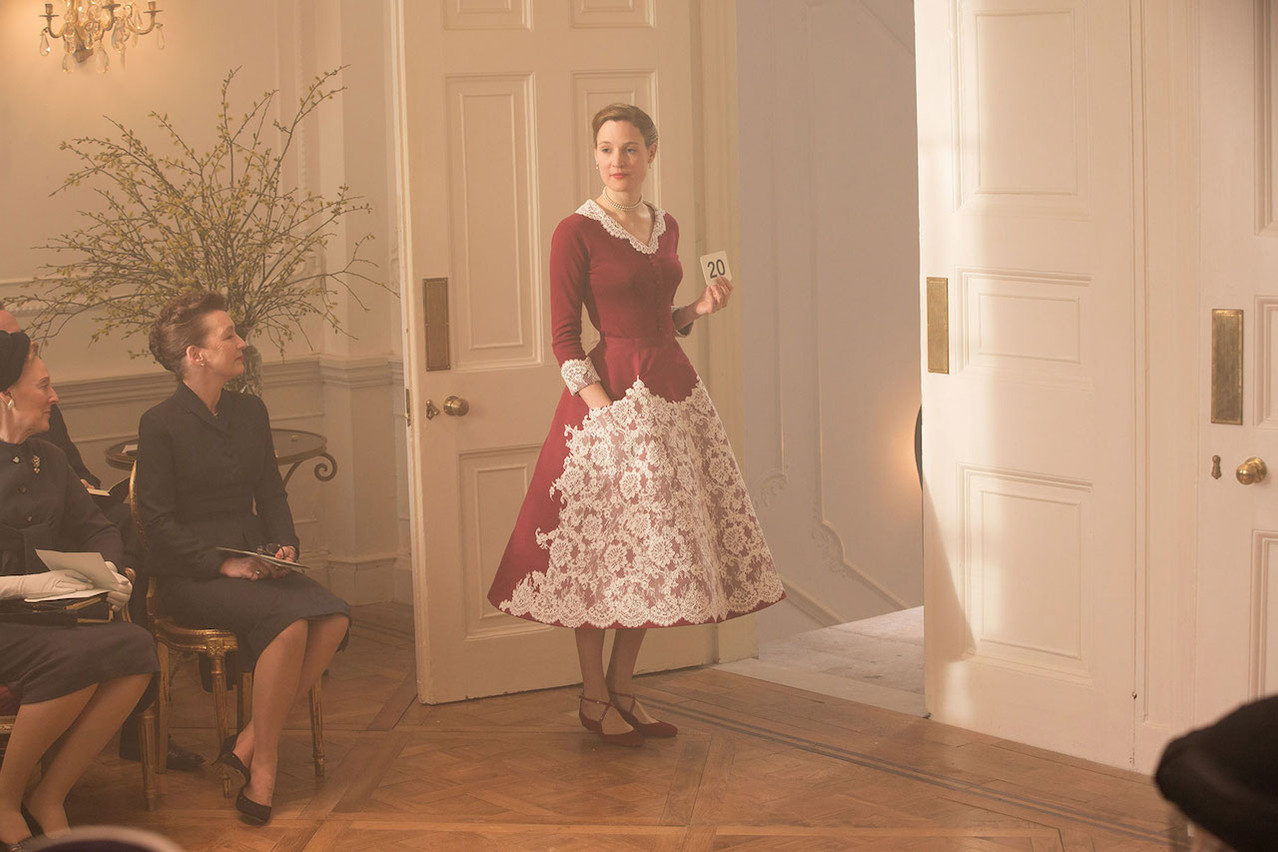Knowing that Paul Thomas Anderson’s “Phantom Thread” is likely to be Daniel Day-Lewis’s final film as an actor, the audience is eager to meet his latest incarnation, the dress designer Reynolds Woodcock. Luxembourg audiences, of course, are also eager to meet his co-star, the actress Vicky Krieps, upon whom so much praise has been justifiably lavished. Woodcock is first encountered as he quietly greets a corps of seamstresses arriving at his London abode, which also serves as his atelier. Softly spoken, meticulous in his appearance, upper middle-class and very English, Woodcock shares an unreserved obsessiveness but is otherwise far removed from Day-Lewis’s most recent Oscar-winning roles as Lincoln in Spielberg’s biopic and Daniel Plainview in Anderson’s “There Will Be Blood”.
Having had his formidable sister Cyril (a wonderful Lesley Manville) dismiss his latest lover, and frustrated by the increasingly continental demands of his clients--“Chic? Oh, don’t you start using that filthy little word,” he tells Cyril later in the film--Woodcock sets off for a break by the sea. There he meets the Luxembourg waitress Alma Elson (Krieps). Her nationality is never explicitly revealed, but the actress says she has purposefully left a trail of breadcrumb clues in the film to indicate Alma is, indeed, from Luxembourg.
Muse and mother figure
Woodcock is smitten and brings Alma back to London to be his model and lover. Under the watchful eye of Cyril, the relationship between designer and muse, for that is what Alma becomes, is a constantly shifting yet very subtle power struggle. But she seems to have summed him up rather more quickly than he has her. Indeed, in their very first encounter, as she serves him breakfast in a hotel dining room, Alma scribbles a note in which she calls Woodcock “the hungry boy”. For all his need to be in control of everything, even his self-restrained rages, he is a man very much in need of being mothered.
Alma, as the Latin root of her name suggests, nourishes Woodcock for better and for worse like a mother would a beloved child. At one stage, as she nurses him through a bout of food poisoning, Woodcock even has a saintly vision of his mother which disappears as Alma re-enters the room.
Krieps is a beautiful and powerful force at the very centre of the film, no more so than when she struts and dances during a fashion show for Woodcock’s clients, unsure whether he is watching through a spyhole. Her chemistry with Day Lewis is astonishing as their characters flirt and charm each other, battle with words and their very physical presence--a playful argument about the fabric of a dress and a more passionate stand-off at an almost surreal New Year’s party are highly memorable. But nothing sears into the mind of the audience quite so deeply as when Alma, silently observed by Woodcock, cooks a mushroom omelette and then delivers a cutting twist of dialogue in a scene that Krieps fully commands.
The film is exquisitely shot, dressed and perfectly balanced as we have come to expect of Anderson. And the soundtrack, by Anderson’s long-time collaborator Johnny Greenwood, superbly matches the mercurial mood of the piece. But it is the articulation of Krieps’s first and final lines, which frame the film, for which the brilliance of “Phantom Thread” will ultimately be remembered.
“Phantom Thread” is showing at Kinepolis Kirchberg, Ciné Utopia and the Scala in Diekirch. See https://kinepolis.lu/en/ for screening details.
